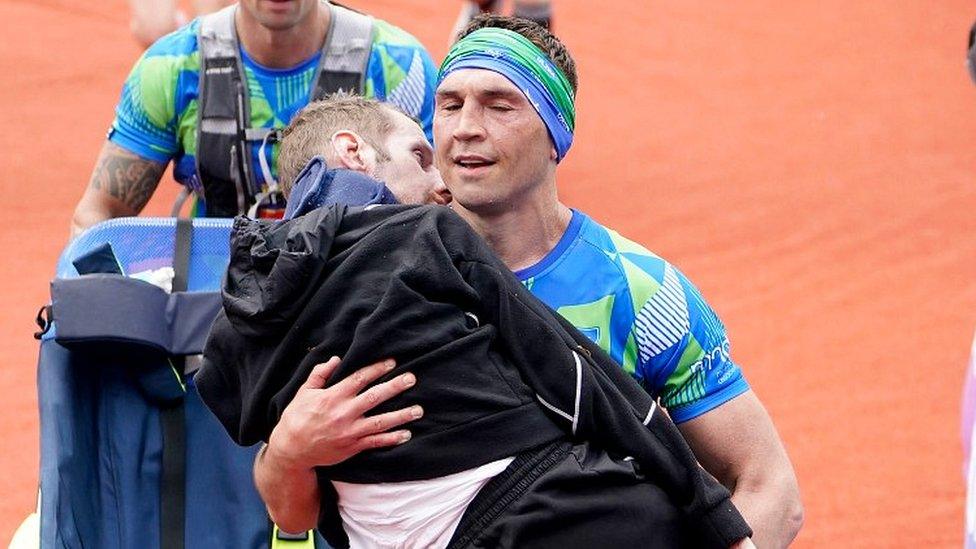MND wheelchair user to be Great South Run pace setter
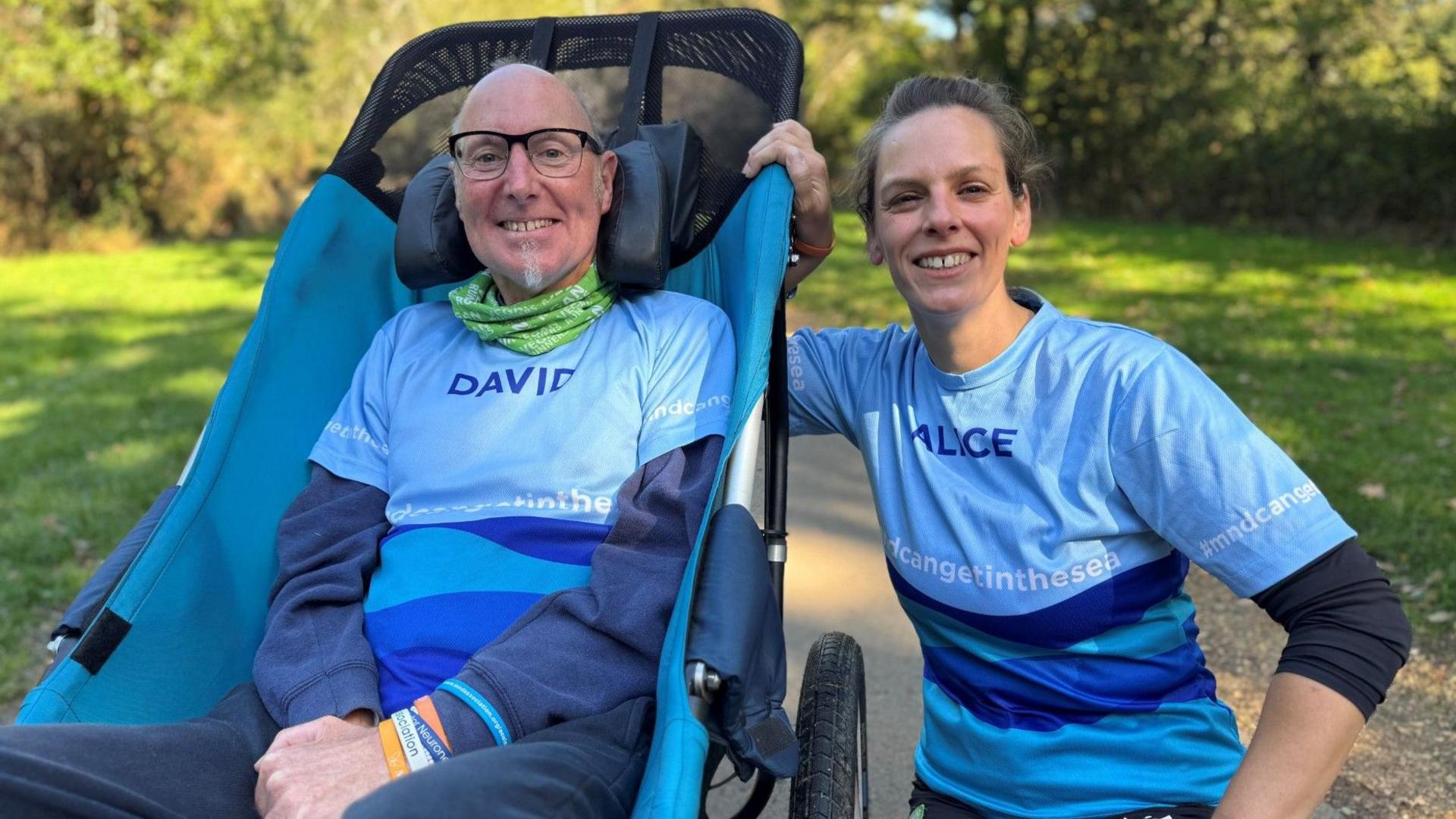
David Baker's wife Alice pushes him in a specially-adapted chair when they race
- Published
A former marathon runner is set to become the first ever wheelchair-using pace setter at this year's Great South Run.
David Baker, from Southampton, was diagnosed with Motor Neurone Disease (MND) in 2023 but has continued to take part in races with his wife Alice, who now pushes him in a specially-adapted chair.
"She's my rock," he told the BBC. "She's an absolute machine. I'm very grateful that she can do that for me and it keeps me involved in the sport."
The couple said the opportunity to set the pace at the Great South Run was "really exciting" and they hoped to inspire others to take part in assisted running.
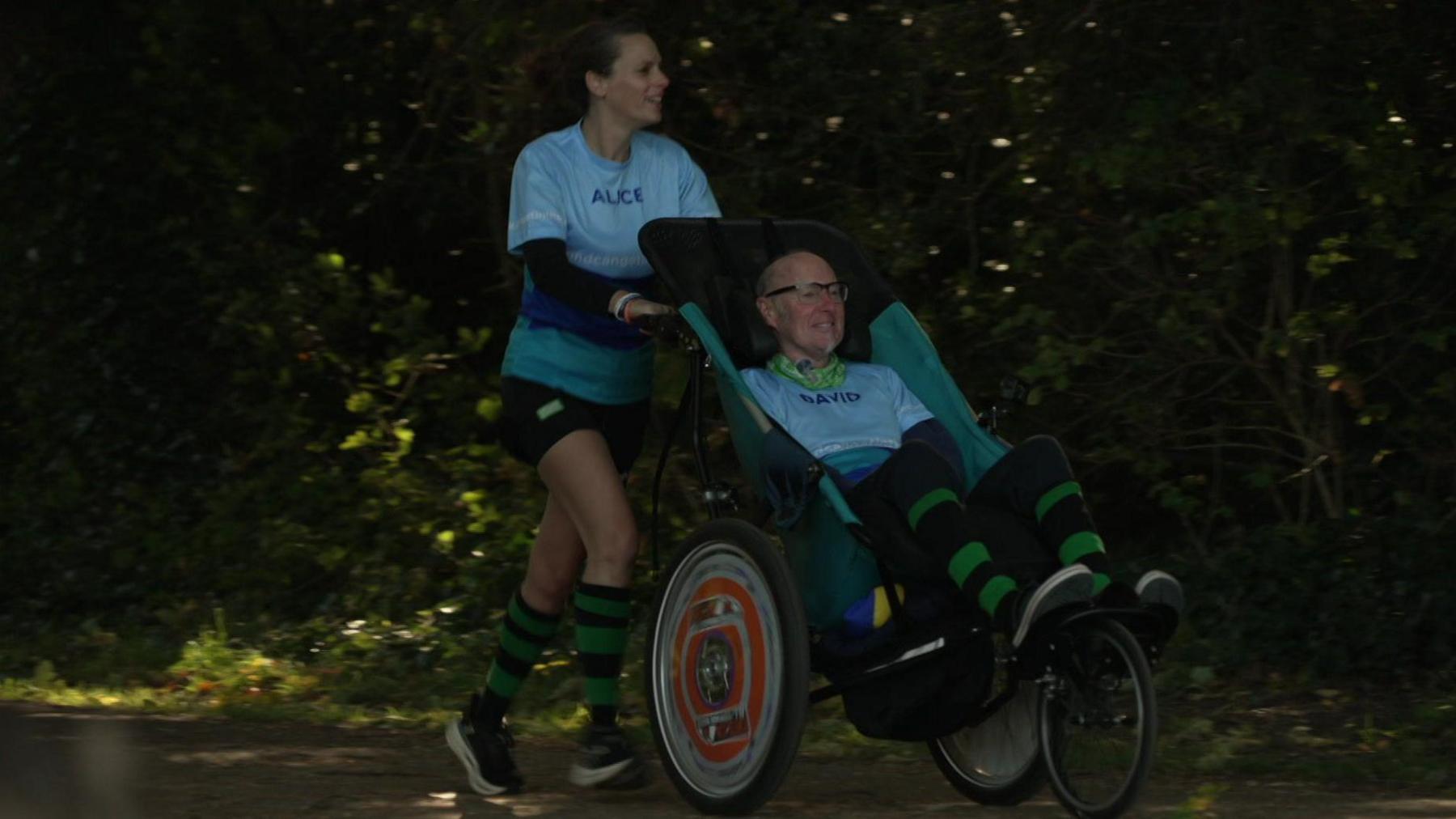
"He's constantly telling me I'm doing a great job even when I'm doing a rubbish job," Alice says of her husband
The Great South Run is the annual 10-mile (16km) race that has been held in Portsmouth since 1991. About 25,000 entrants will take part in the event on 19 October.
"We've done lots of practice and we think we've got it down," Alice said about their important role.
The couple keep a blog about their life with MND, external, which they described as "very honest, sad, happy, but real".
"I went from running marathons to getting slower and slower, to running parkruns, to walking parkruns," David said when recalling his worsening MND.
But 18 months ago David and Alice started assisted running together, and they have since taken part in more than 50 parkruns.
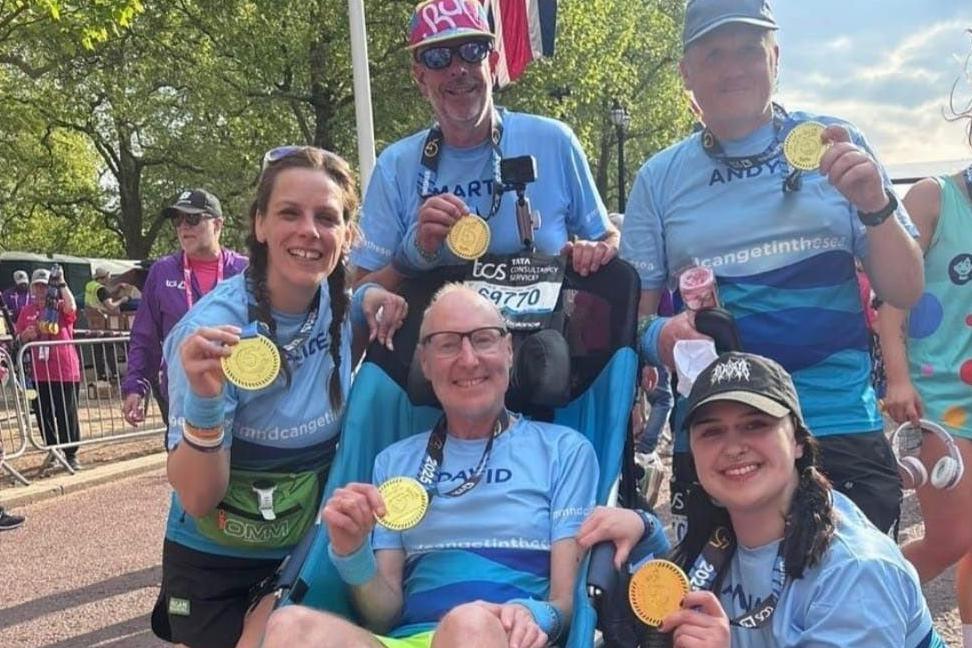
Alice, alongside three others, took turns pushing David around the London Marathon
"It's the friendships, the social side of things that we really love," Alice said.
"And it's really important for Dave's mental health to be able to get outside in the sun and take part in sport."
"It gets me out of the house, that's the thing," David said. "We want to show that sport is all-inclusive."
"We encourage each other," Alice added.
"Dave really encourages me up the hills, he's constantly telling me I'm doing a great job even when I'm doing a rubbish job."
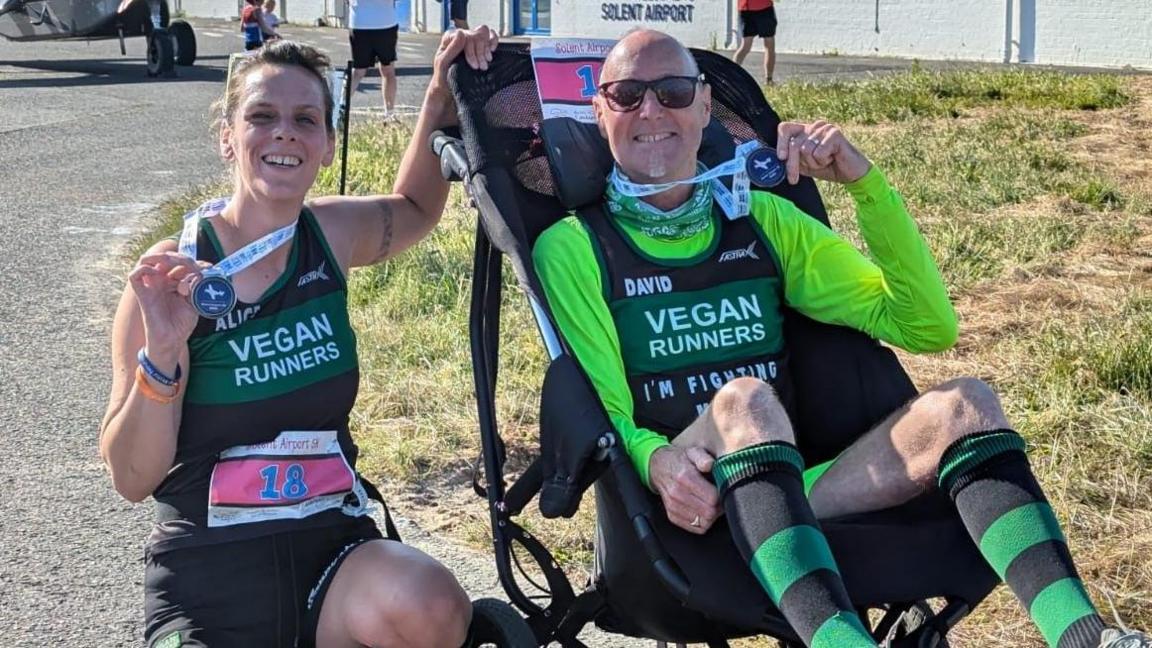
The couple hope to inspire others to take part in assisted running
Alice, alongside three others, took turns pushing David around the last London Marathon, where he got out of his chair to walk across the finish line.
"It was the most magical moment ever...it was very emotional but very special, something we'll remember forever," she said.
David and Alice have next set their sights on the Leeds Marathon, which is now named after rugby league legend Rob Burrow.
Burrow died in 2024 aged 41 after being diagnosed with MND five years earlier, and he remains a "role model" for the couple's continued determination to run together.
Alice said: "It was seeing Rob Burrow doing the Leeds Marathon in his running chair and Kevin Sinfield picking him up and carrying him over the finish line... if we hadn't have seen that on the telly I wouldn't have known you could push someone with MND in a wheelchair.
"So it's thanks to that video clip that we're now doing exactly the same thing."
What does MND affect?
mobility and movement
speech and communication
breathing, swallowing, eating and drinking
emotions, feelings, thoughts and behaviour
relationships and family
People with MND need ongoing care and support from specialists including physiotherapists, occupational therapists and speech and language therapists.
As it gets worse, people will have difficulty moving and may need a wheelchair.
They may also need a ventilator to help them breathe, and assistive technology to help with speech.
Source: NHS, external
Get in touch
Do you have a story BBC Hampshire & Isle of Wight should cover?
You can follow BBC Hampshire & Isle of Wight on Facebook, external, X (Twitter), external, or Instagram, external.
- Attribution
- Published6 October
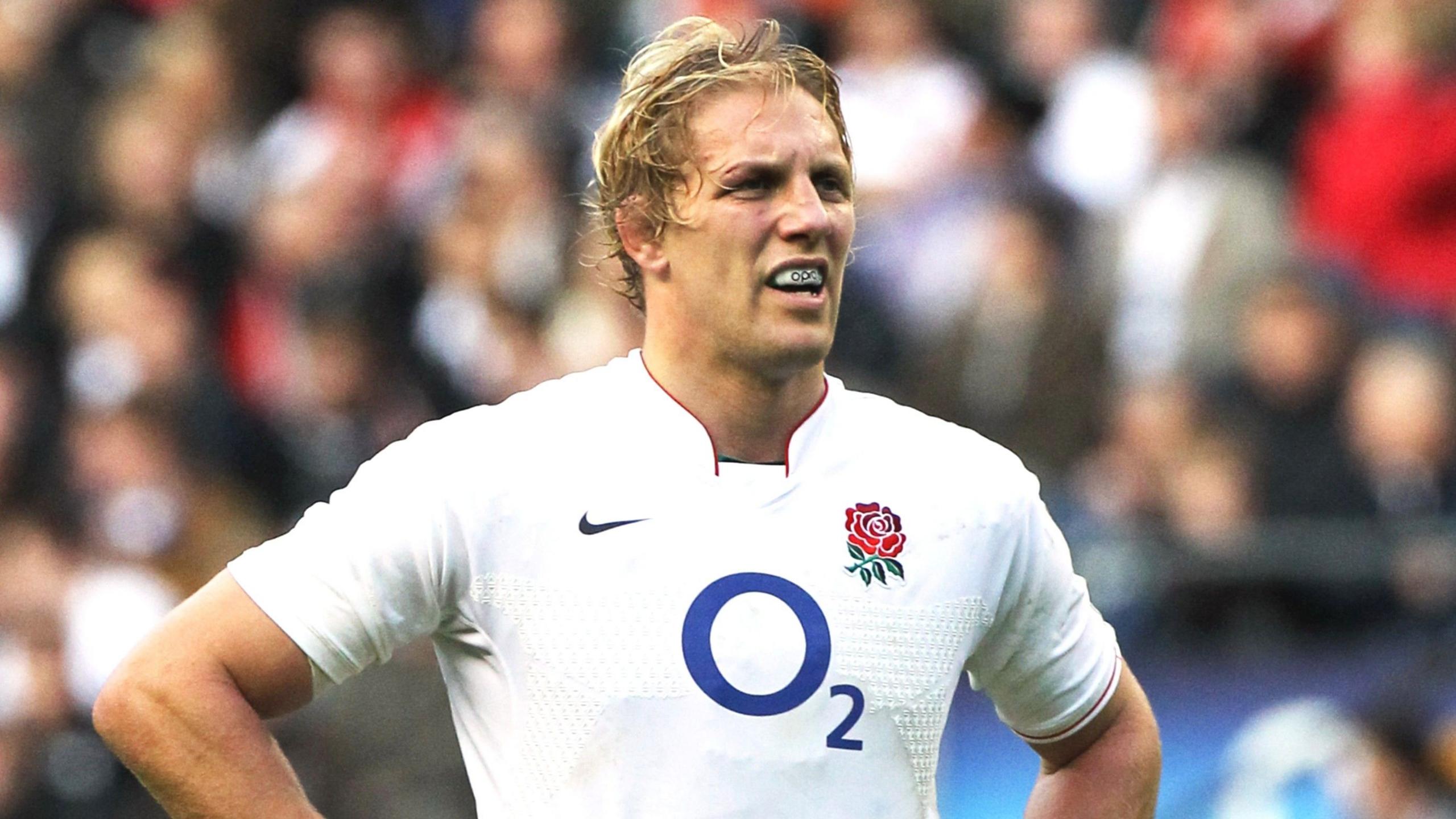
- Published3 June 2024
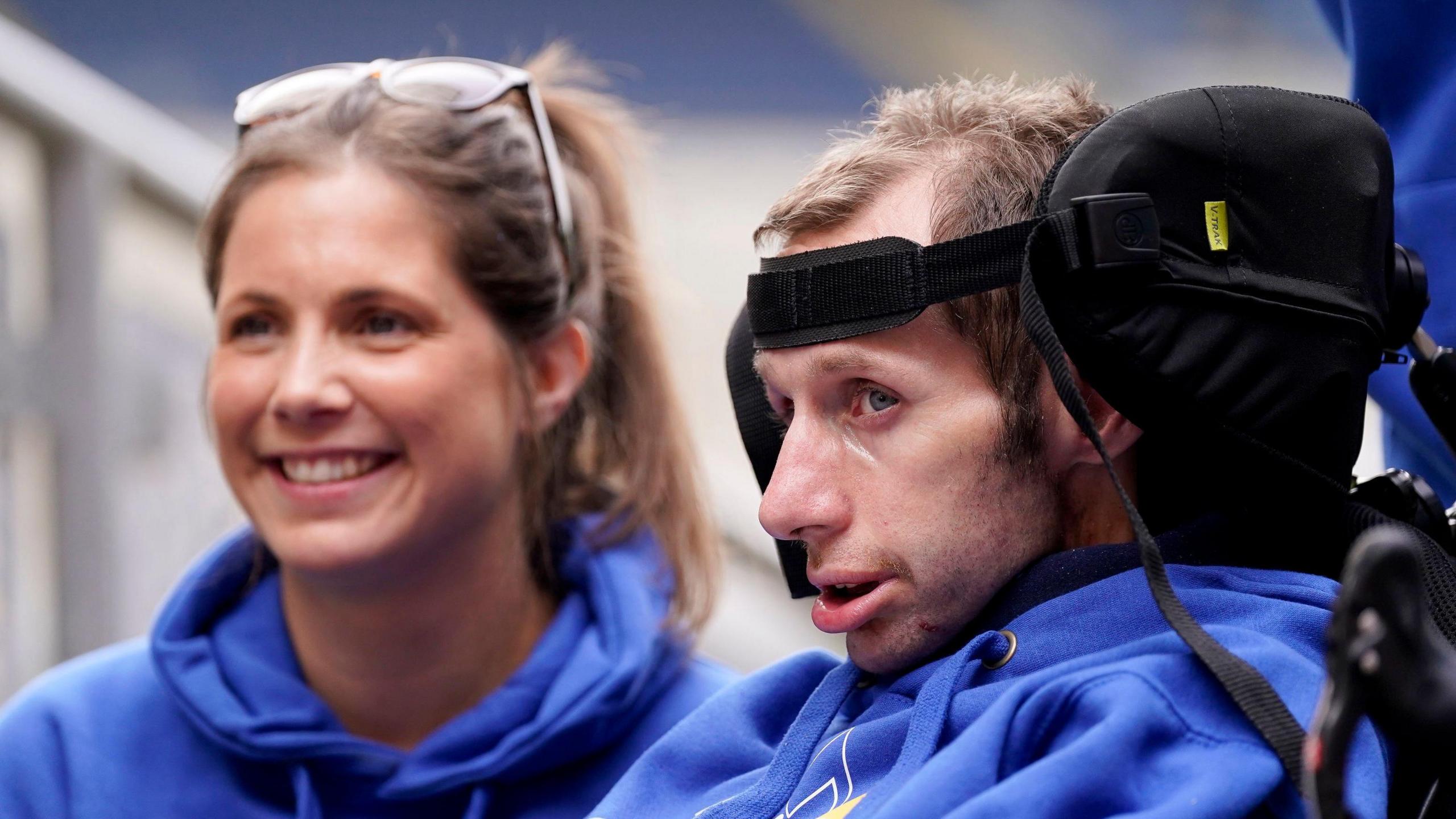
- Published14 May 2023
